
Not For A Million Dollars
by MOLLY LAMBERT
So the jellyfish are showing up extra early this summer, murdering triathletes, turning beaches into horror movies and normally staid swimmers into quivering lumps of goo. The NYT had my favorite quote in a recent news story; a Hudson River boat patrolman said “I looked over and in this massive soup of trash and debris was this beautiful pulsating jellyfish.”
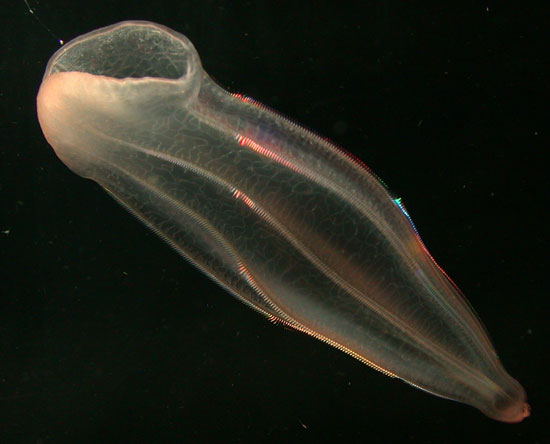
Why should you be scared of jellyfish? Because after the evil all-seeing eyeless vermin sea scourge breed like crazy, choke the wildlife from the oceans, eat the humans and all the other creatures of the world, and repopulate the Earth with slimy many tentacled maliciousness, THE FIRST SHALL BE LAST AND THE LAST SHALL BE FIRST

Jellyfish Lake is completely isolated. In the distant past, it had an outlet to the ocean, but it was closed off and the high jellyfish population started to feed on quickly-reproducing algae.
Earth's first animal was the ocean-drifting comb jelly, not the simple sponge, according to new finds that shocked scientists who didn't imagine the earliest critter could be so complex. The mystery of the first animal denizen of the planet can only be inferred from fossils and by studying related animals today.
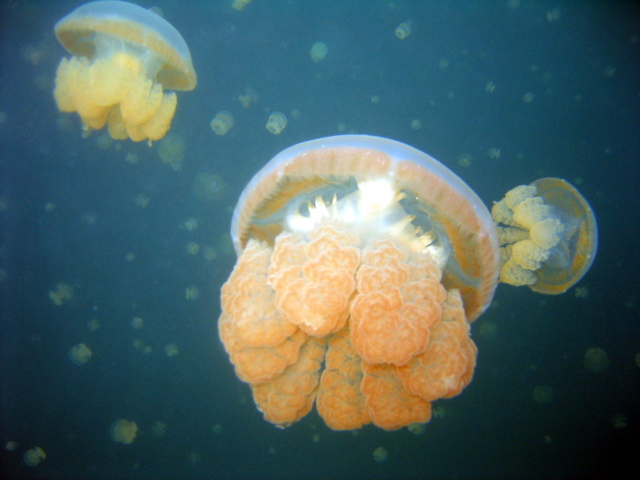
Is Jellyfish Lake the most terrifying place on the planet? Yes.
The new study surprisingly found that the comb jelly was the first animal to diverge from the base of the tree, not the less complex sponge, which had previously been given the honor. "This was a complete shocker," said study team member Casey Dunn of Brown University in Rhode Island. "So shocking that we initially thought something had gone very wrong."

Very, very wrong. Cthulhu wrong. Bloop!
Dunn's team checked and re-checked their results and came up with the same result every time: the comb jelly came first. Unlike sponges, comb jellies have connective tissues and a nervous system, and so are more complex.

Though squishy and tentacled, comb jellies are not, however, true jellyfish as they lack the classic bell-shaped body and characteristic stinging cells. The finding was unexpected because evolutionary biologists had thought that less complex animals split off and evolved separately first.
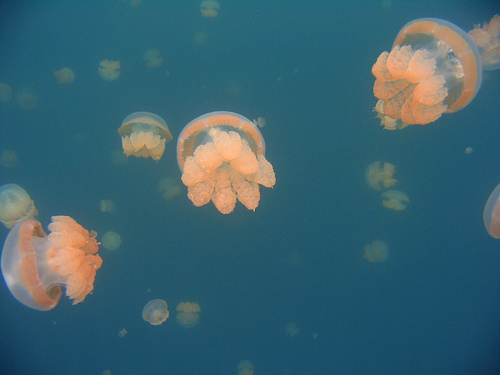
At night, the jellyfish descend into a layer of hydrogen sulfide which is found below 15-20m of depth. SCUBA diving in the lake is prohibited to avoid disturbing the jellyfish
Dunn says that two evolutionary scenarios can explain why the comb jellies would actually have been first among animals. The first is that the comb jelly evolved its complexity independent of other animals after branching off to forge its own path.
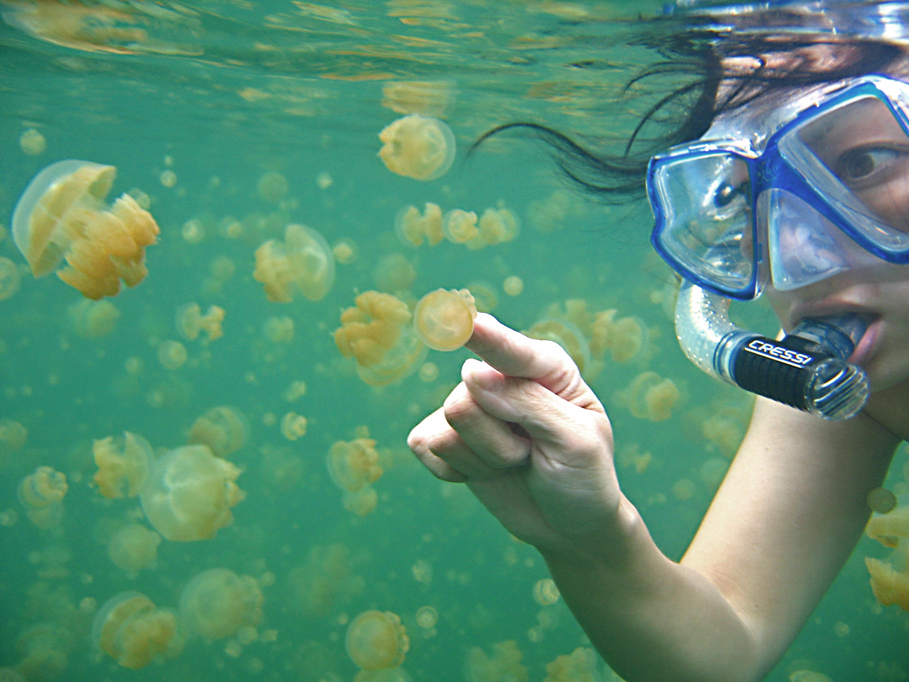
The second is that the sponge evolved its simpler form from the more complex form. This second possibility underscores the fact that "evolution is not necessarily just a march towards increased complexity," Dunn said.
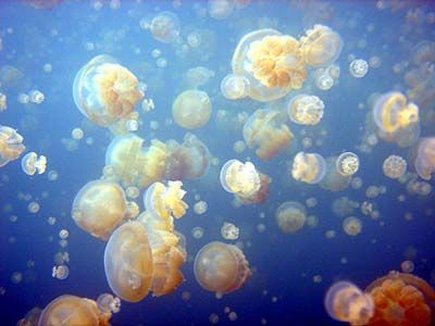
oh! get me away from here I'm dying
Though scientists can say which animal branched off first, they can't date precisely when this early comb jelly diverged away.

The jellyfish of Jellyfish Lake actually do have small stinging cells, or nematocysts. However, the stinging cells are so tiny, their sting is not detectable on most human tissue.
"Unfortunately, we don't have fossils of the oldest comb jelly," Dunn said. "Therefore, there is no way to date the earliest jelly and determine when it diverged." Though comb jellies are a common creature in the seas today, these modern specimens likely look very different from their early ancestors.

ancient jellyfish fossil is older than your fossil
Dunn and his team hope that their approach will fill other gaps in the tree of life, including where the branches of many of today's species belong.
"On The Beach" - Neil Young (mp3)
"Rooming House On Venice Beach" - Jonathan Richman (mp3)
"On Some Faraway Beach" - Brian Eno (mp3)
"Beach Chair" - Jay-Z ft. Chris Martin (mp3)

Molly Lambert tumblr here
"Let's Hit The Beach" - Arabian Prince (mp3)
"Rockaway Beach" - The Ramones (mp3)
"Cool Cool Water" - The Beach Boys (mp3)
"Don't Go Near The Water" - The Beach Boys (mp3)
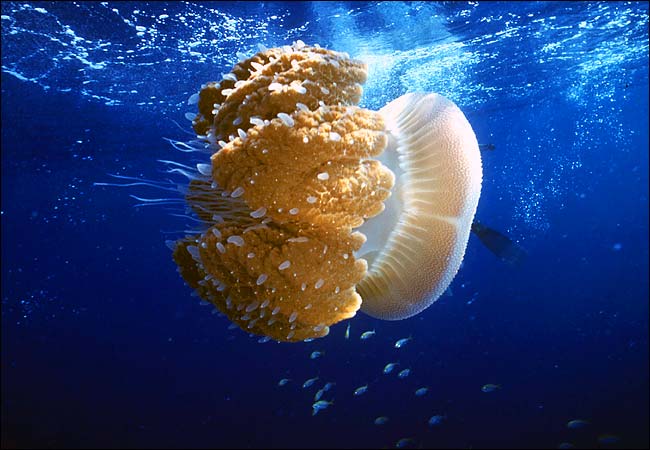
Molly Lambert is the managing editor of This Recording.
PREVIOUSLY ON THIS RECORDING
What light on yonder window breaks.
You change in real life while staying the same on the interwebs.
A film that more than disappointed us, it insulted us.

This Recording Is Bobbing Along, Singing A Song
On The Bottom Of The Beautiful Briny Sea